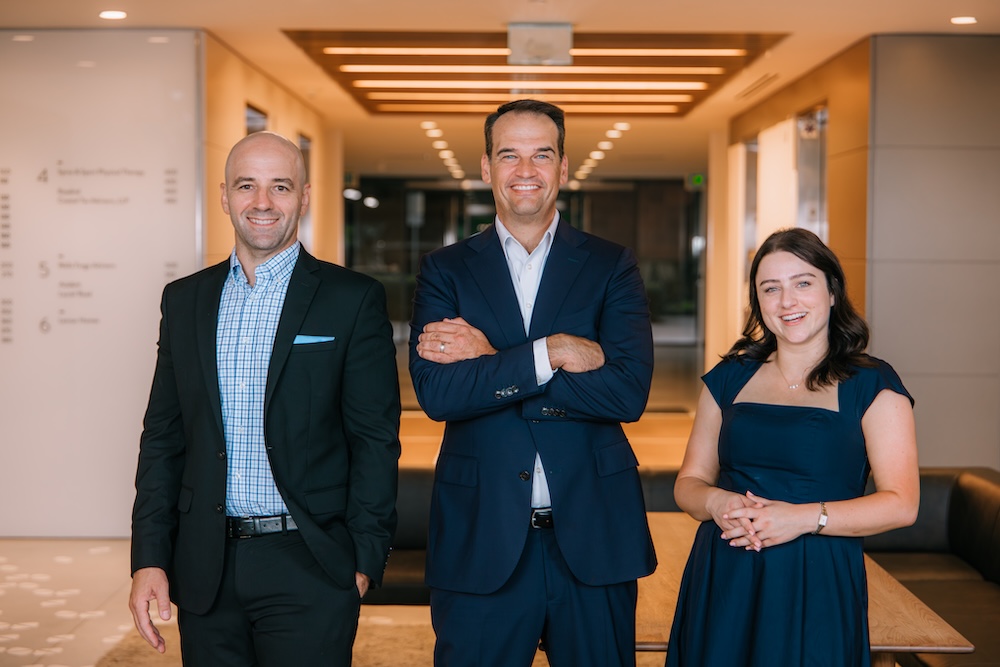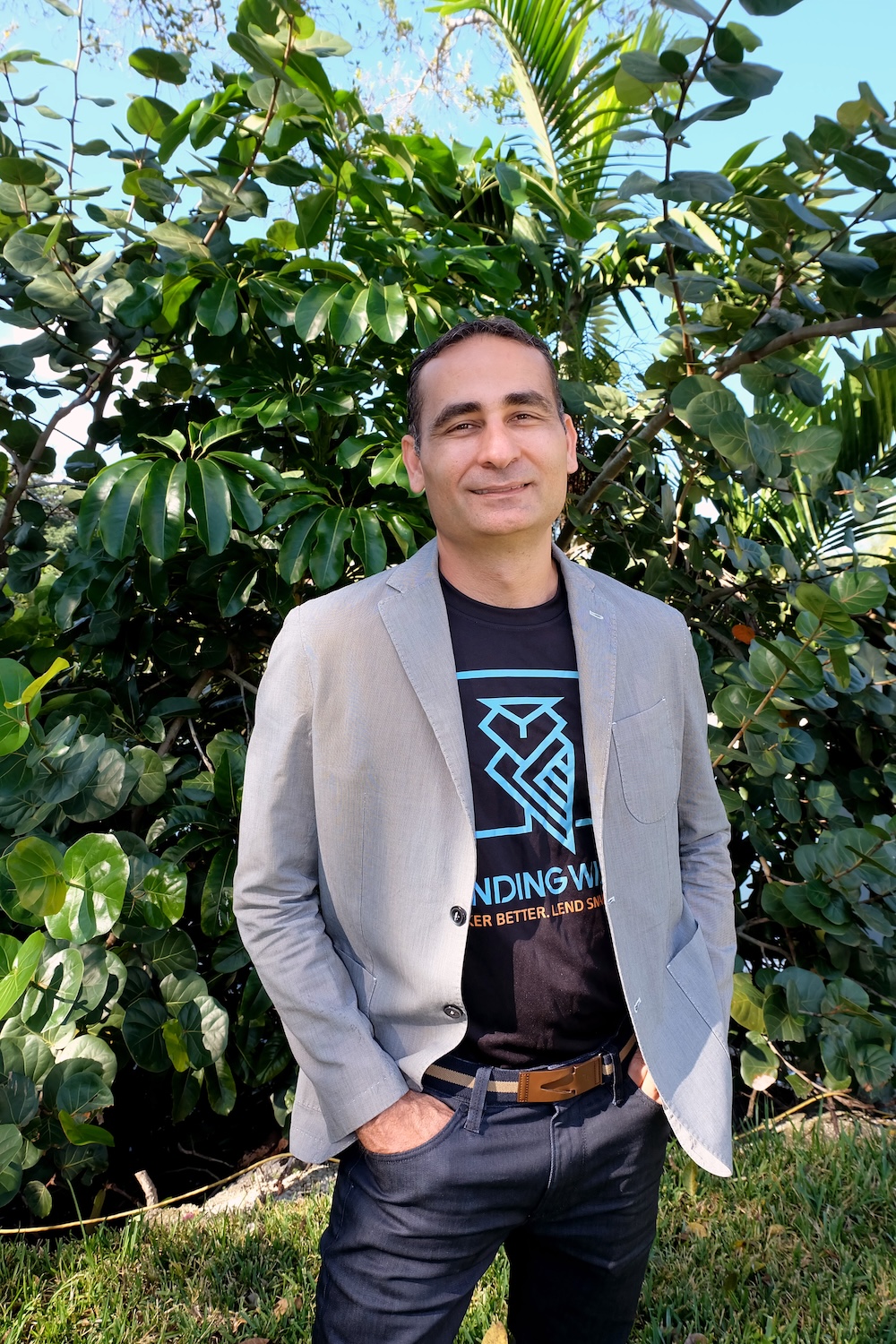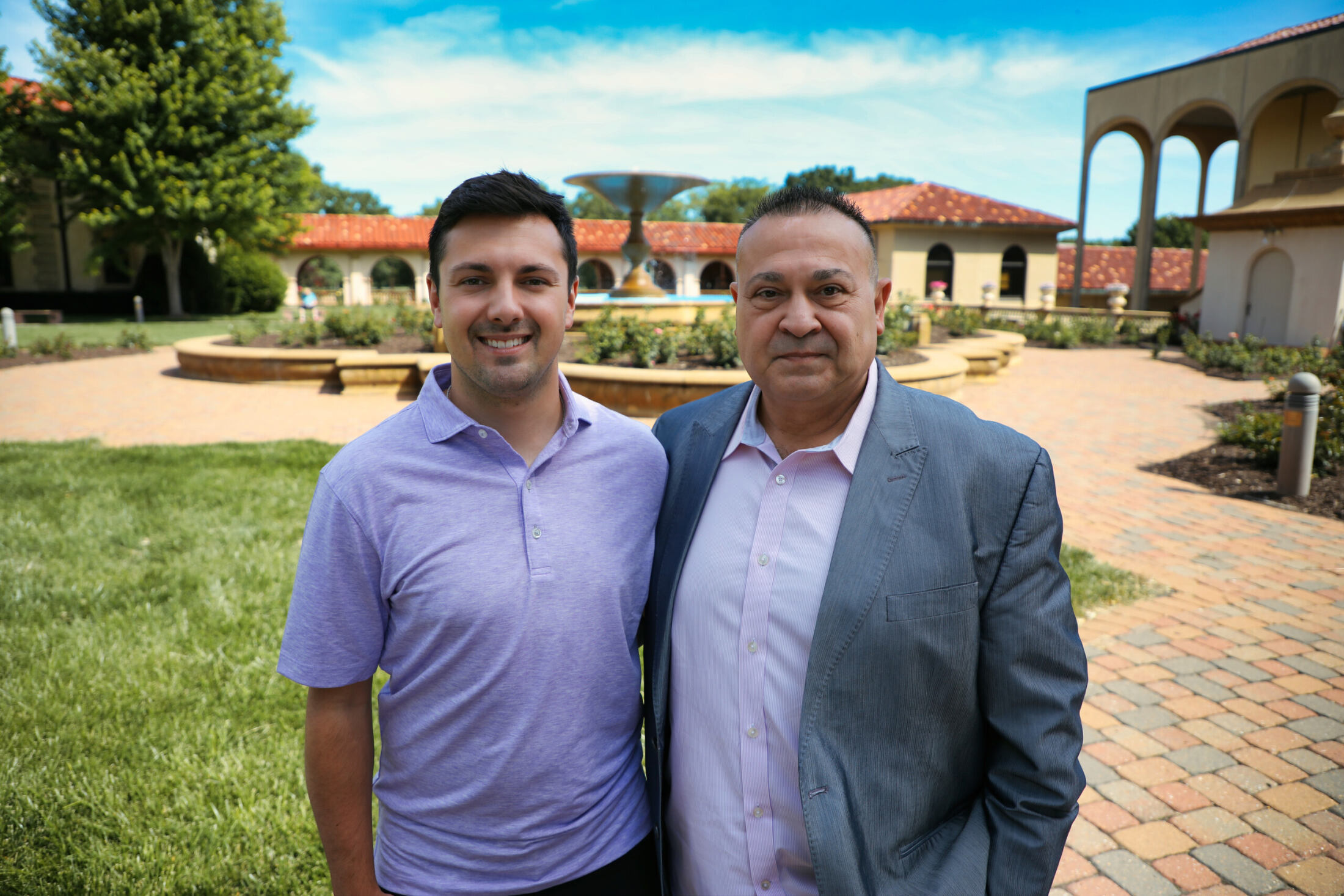Entrepreneurial drive finds a home in real estate lending.
When Whit McCarthy, senior vice president of Civic Financial Services, graduated from Colby College in 2010, he was ready for new experiences. So, he left the Northeast and began to blaze his own trail in Southern California.
Originally from Connecticut, McCarthy said he didn’t want to follow the path he saw so many others tread growing up—commuting to New York City and working on Wall Street. After spending his college years in Maine—and coming off an especially cold winter, he joked—he ended up in the South Bay area, the beach-side suburbs
of Los Angeles.
He embraced the SoCal life, surfing and starting a granola company.
“I wanted to have some entrepreneurial freedom to chart my own course,” McCarthy said.
Because he didn’t have a network in the area to help him with a job search, he decided to launch a business based on his mother’s granola recipe.
He cultivated the company, serving about 45 accounts in the Los Angeles region. As the business grew, McCarthy had two important revelations. The first was that he and the business could not continue to grow if he didn’t make the time to learn from others. And he realized that as a solopreneur, he wasn’t able to focus on the aspects of the business he most enjoyed.
“I needed to gain some bandwidth so I could focus on what it is that I think I do best, which is really the sales and business development side of the business,” McCarthy said. “Relationship management—I love that. I could go and pick up new accounts all day long.”
As someone who thrives on building relationships, McCarthy said it was tough
to work alone.
“I probably went to Starbucks four times a day and was way over-caffeinated just because I needed personal interaction,” he said.
Another factor: “I was not raking in the dough slinging granola,” McCarthy said. So,
he found a buyer for the granola company and looked for an opportunity to focus his talents.
‘That’s where I knew I was going to end up’
McCarthy spent time in technology sales, but he felt a calling to the real estate industry.
“I know there’s been more wealth generated in the history of wealth through the owning and holding of real estate than anything else. So that’s where I knew I was going to end up,” he said. He had been exposed to it through his family.
A wise mentor told McCarthy to start on the lending and financing side as he made the transition to the industry.
“It’s typically the hardest part to understand in a real estate transaction, so once you get an understanding of how the finances work, you can parlay those skills to pretty much anything inside of the real estate world,” McCarthy said. “So that’s why I decided to come into a lending environment, and I’m happy I did because I love it. I live for it.”
McCarthy joined Wedgewood, a vertically integrated network of real estate companies, to do business development for home loans. The company quickly realized traditional lending, with its razor-thin margins and compliance red tape, was not a good fit and sold the division.
But McCarthy stayed. Along with Jack Helfrich, he started “putting pieces to this puzzle together.” Those pieces became Civic Financial Services.
Explosive Growth
When it launched in 2014, Civic Financial Services focused on the fix-and-flip space: bridge lending, short-term loans, bridge loans and other products geared toward real estate investors.
Clearly, McCarthy and Helfrich hit on a winning formula. The company now employs about 300 people and has expanded to 21 states. It hit a big milestone last year: $1.3 billion in originations, a goal the founders had set early on.
In 2019, Civic released a product for investors focused on rental properties. One of the hallmarks that sets the company apart, McCarthy said, is the speed and efficiency in its processes. Civic can accommodate short timelines and can even process a loan in seven days for a repeat customer.
At the beginning of 2020, Civic implemented changes to help streamline operations. In that shift, McCarthy took over the correspondent lending division with the goal of scaling it up. His division partners with other lenders, allowing them to leverage Civic’s capital, products, and operations team to fund their non-owner-occupied investor loans. Correspondent lenders represent themselves as a direct lender, closing loans in their own name.
What started as an exciting opportunity quickly became one the biggest challenges in McCarthy’s career as the coronavirus pandemic took hold.
“As soon as I took the reins, I immediately got to work in sourcing some amazing prospective correspondent partners. We were gearing up the channel and looking to scale quickly when COVID-19 hit, which had an amazingly swift and decisive effect on Wall Street and the secondary markets,” he said. “We were immediately frozen in our
tracks and forced to put a hold on onboarding any new correspondent accounts. We had to sit and wait for the capital markets to open back up.”
Civic was fortunate. With its strong financial position and capital partnerships, McCarthy said, the company didn’t skip a beat with retail clients, broker partners, and approved correspondent lenders.
“We did not have to stop originating, nor lay off any of our staff,” he said.
Like so many others during the early days of the pandemic, what they did have to do
was wait. For Civic, the turnaround came relatively quickly: After about two and a half months, McCarthy said, the market began to bounce back, and the company resumed onboarding new correspondent lenders.
“We are absolutely back on track and are aligning ourselves with some of the best in the business,” he said.
The uncertainty caused by the pandemic and the delay in growing his division was frustrating at first, McCarthy said, but he’s come to see the silver lining in the gift of time.
“It presented our team with an opportunity to recalibrate our processes, programs, and systems to make Civic’s correspondent lending platform best-in-class,” he said.
Pride and Purpose
McCarthy is proud of the time and effort he’s invested in Civic. Culture is paramount. The core values tell employees and clients alike what the company stands for and what’s expected: Act with honor, be a great partner, communicate clearly, create smiles, and simplify. Like branches of the U.S. military, the company issues employees a Civic Coin with the core values and company purpose: to enrich our people, partners, and communities.
“It’s something we all carry with us all the time. It’s just a reminder to live by those core values every single day,” McCarthy said.
The purpose of “enriching” isn’t “lining your pockets,” he said. It speaks to investing in the employees.
“It’s our duty to make sure that we’re growing everyone as an individual as well,” he said. “What I love, and I think it’s the most gratifying thing in my experience here, is just the elevation and empowerment of the people around me. I do need to lead, but my job is also to create leaders.”
With that goal in mind, Civic has created a robust Top Gun training program for those new to the industry. The six-week course covers industry essentials as well as how to be successful at Civic.
The course is no cakewalk. There are quizzes, and participants must pass the midterm and final exams to join the sales floor. Graduates shadow experienced salespeople to learn the ropes.
“I think just throwing someone into the sales team and hoping they can swim is tough when they don’t have prior experience,” McCarthy said. “But we’ve found that we have some amazing talent going through this Top Gun program that come out and be successful account executives inside their first year.”
Strive for More
In the spirit of empowering others in the industry, McCarthy shared some advice for those early in their career:
- Immerse yourself. “There’s so much information out there for you to consume,” McCarthy said. He recommended joining real estate investor organizations and associations to network with others in the industry. “You just have to jump two feet in. I think a lot of people procrastinate when it comes to bettering themselves. The people that are successful are the ones that just have an insatiable appetite to consume material and educate themselves.”
- Align yourself with an organization, and, specifically, a leader. “Whether it’s a CEO or the person that’s going to be your direct manager, make sure that person has a clear vision, someone that you want to follow,” he said. Choosing the right leader will help with continued personal and professional growth.
McCarthy said he, too, still strives for more.
“At the end of the day, I feel like I’ve always got something to prove,” he said. “We’ve been able to find some success here at Civic, but we are in no way done.”











Leave A Comment